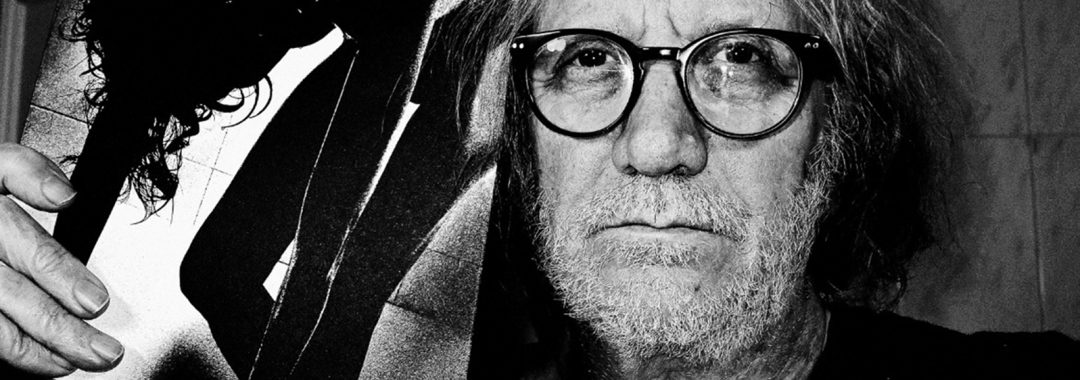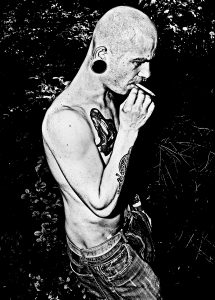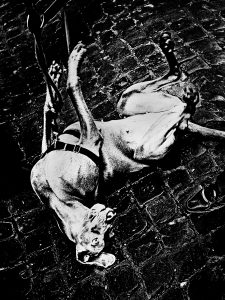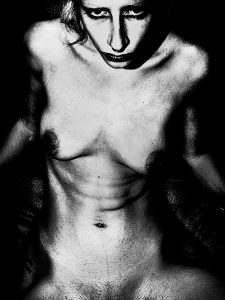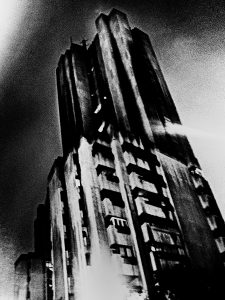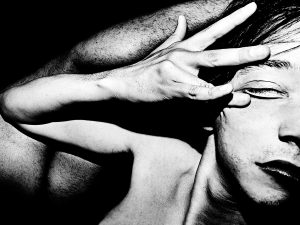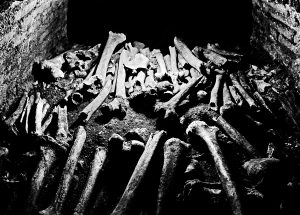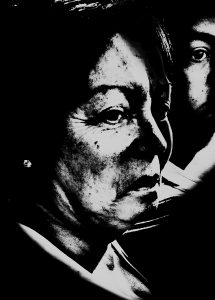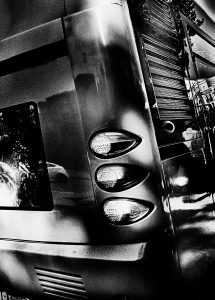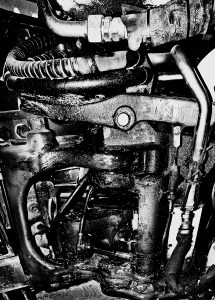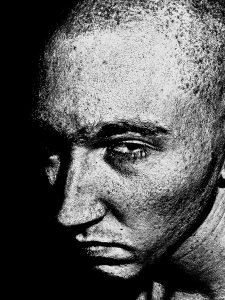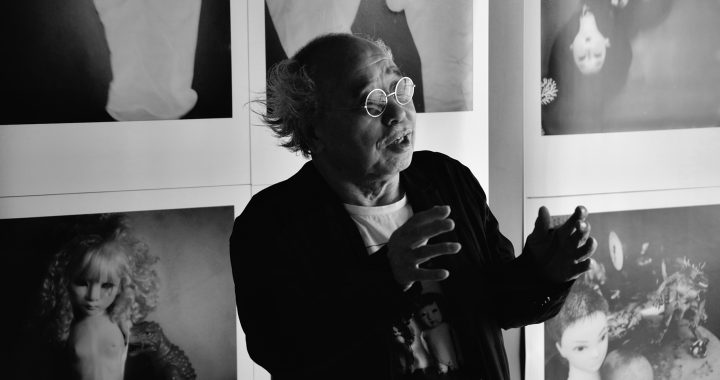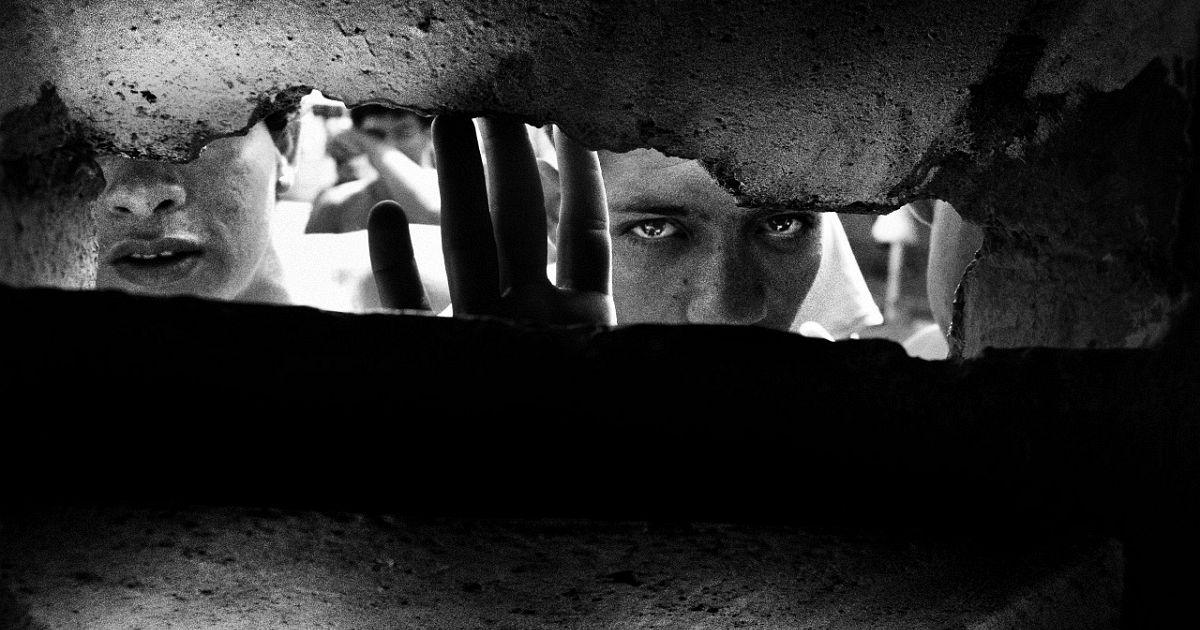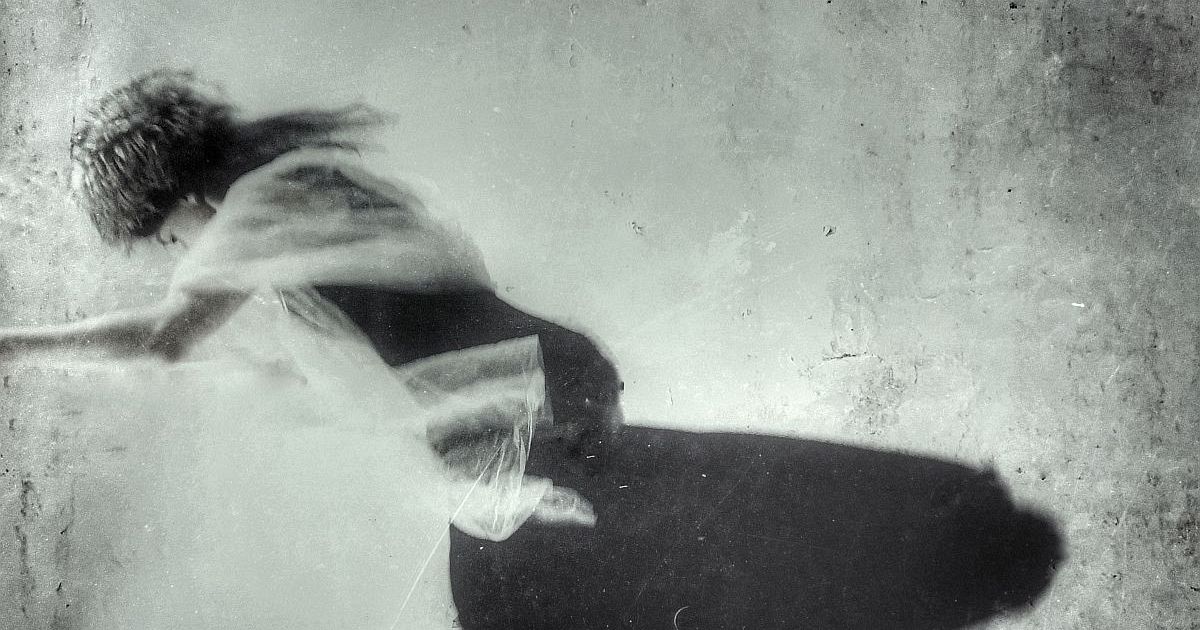Miguel Oriola is Spanish photographer. He lives and works in Madrid. His artistic photographic creation has expressive visual and is being well recognized in Spain and abroad by many galleries and institutions. We talked about his work, approach to photography and his responsibilities as a teacher.
Why photography? Why did you choose it?
I think photography chose me. I was only 15 years old and I only knew that I wanted to do something like painting, writing or being an actor. All of that had to do with the world of expression in art. One day I saw myself on a photography set, and that got me. The space, the lights and the magic that I found there. But it was not at that moment that I decided to be a photographer, I was too young. That started when I left my small town of Alcoi and moved to Madrid. With photography I was able to earn my living and I also knew my possibilities. Since then I am a photographer. Although, in principle, I`ve always had the idea of being someone else, a writer or an actor. Curiously, one day I asked myself why I want to do something else if I am a photographer. Now, when I have a time, I like to write.
Do you see yourself as a documentary photographer?
Whenever one takes photos, he is a documentarist. I am not a reporter, but if I do “documents” of my environment in a subjective and experiential way, I manifest my personal vision of the world. I think I fill my work with a good dose of irony, sarcasm, and darkness. It must be my character; photographically speaking, I am the most honest with myself. I try to have no “filters”, but for me the most important thing is the experience, the act that generates the images.
What do you think is a role of a documentary photographer today?
I think the most important role is honesty, and certainly a great knowledge of what you are doing. I totally believe in one’s own instinct and intuition. When you are very prepared, things come out more easily. Not only do the eyes work, but the knowledge of both the world and yourself.
Is there a need to put photographer in some boxes with a label?
As we know, every day there are more photographers and everyday photography is more extensive in its expression. So there are practically as many ways to take photos as photographers. This is fine, but every day is more difficult to classify the photographers. Personally I do not worry, because I think we are living in a wonderful time where young or old photographers are contributing new formulas and new paths without restrictions and with absolute freedom and diversity. I do not think we should restrict anything.
Your photographic language is very expressive and on your pictures can be found both attributes of expressive interpretation – visual and contentual. E.g. series Non insane automatismo. What is it about? Is this some fight with inner demons?
Parasomnia is the disease that sleepwalks suffer. If a sleepwalker in his state commits a crime, the defense lawyer has a criminal figure that exempts him from guilt, and it is called Non Insane Automatism. This is real. So I have done this work with images that possibly could patient of Parasomnia (I do not suffer Parasomnia, I sleep very well) see and experience. Deep down I think you’re right in associating these photos with a fight of the inner demons. But it’s just my sarcastic part, since I do not believe in demons. I can add that I do not work on established ideas, but I take photos inspired by my intuition. But this work could simply have other meanings. This is what attracts me to photography the most.
There are naked bodies on many of your pictures. Is it your way to see real people, real feelings and emotions in their natural form?
For me the most important thing is the human being, sometimes he is in clothes and sometimes he is without clothes. I do not find that much difference. I see nakedness very naturally. In this way, I come closer to its essence. It is not a question of eroticism; it is a matter of confidentiality, closeness, privacy. I take photos in all situations.
Your Alphaville. Is there a link to the French noir movie from 1965?
The name is, but not the content. I wanted to call the book as if I had worked in that non-existent city. I also have a good memory of that movie.
Do you think that a photographic book is the best output for the photographer who wants to leave some trace in a photographic memory?
Yes, the book remains in memory much more than an exhibition. Exhibition is a limited time hanging on a wall and then it disappears. Book, you have it forever and you can see it at your own pace whenever you want, always being able to return to it. It is also cheaper. Books are very precious objects to me. After Alphaville I usually make a book every year, at least. So when I take photos I think more in pages than in photos hanged. The elaboration of a book is very intimate and private work and then it looks the same way.
Which one of yours (book) was the hardest one to compile?
For me the job is to take photos, and then everything is easy. But maybe I am the most satisfied with the last one – “ACTUS“, because I wanted to work better by discarding many photos, selecting each one better. At the moment I have enough material to make two or three new books; they will be for the next months.
You are a teacher, professor. Do you feel the responsibility of passing knowledge to your students?
Yes, I feel very responsible. It often happens that an ex-student tells me that he is already a photographer due to something I told him few years ago. And that’s when I feel responsible and happy, even if I don`t remember what I said to him. I think it is not only the knowledge that gives people the most precious experience, but also the anecdotes that seem to have no importance. There is nothing more beautiful than seeing the faces of the students watching you when you speak to them. I must say that I learn a lot every day.
Was there a moment you wanted to stop doing it (teaching) telling yourself not anymore?
True, every day I say, but also every day is a wonderful job. But I cannot fear that I have to eat every day. This is my job.
Are students different comparing now and e.g. 10 years ago? Did digital technologies change their perception of art or photography?
Well, obviously, digital technology has changed many things, but the essence of photography remains the same. At least in the area that interests me the most, such as motivations, expression, instinct, impulses that make us get going and this part is the most complicated to understand by students – the belief that techniques solve everything. The technique, after all, is only technique and it is not the great solution. They learn it sooner or later. The other part is more about culture and knowledge and that does not always work very well. But I can say that there has always been this problem. I think the speed of getting an image (which can be very good) is often a problem.
What about you and digital age? How to fight and don`t get lost in deluge of pictures on social medias?
Well this could be a problem, sometimes my head may seem like a blender, but in my case I can say that I have the natural ability to discern what interests me and what not, and then it is not a problem. Our brains have a lot of capacity to survive.
You built a pretty comprehensive photo album of photographers with expressive style on your Facebook profile. Do you follow other photographers?
Of course I follow photographers that interest me and I have my references. As for the albums that I upload to Facebook, these photographers interest me but not always directly, but they come closer to my world, and especially students and young photographers should know them. I do this because it is easy for me, and many people can be interested in.
Is there a photographer whose visual is very close to you and your perception of the world?
Yes, I am interested in following the work of Moriyama or Petersen and others similar to them. There are many, especially those, who are not rationalists or pseudo-intellectuals. I am interested in the work of experienced, intuitive photographers and those who are in doubts.
Photo on the right – self portrait © Miguel Oriola.
Miguel Oriola (*1943) was born in Alcoi, Spain. He studied art and music. In the sixties he moved to Madrid to study drama and practiced freelance photography. Since 1977 he shares his dedication to teaching. Since his first exhibition in 1971 he has performed many exhibitions in national and international galleries. His work is present in public and private collections. In 1980 he founded and directed the magazine POPtografia. From his beginnings he has combined his personal work with the publishing fashion houses, illustration and advertising campaigns. He has collaborated with Vogue, Elle, Cosmopolólitan, Trends, El Pais, Vanidad, etc. He is also the author of specialized courses and seminars, and Director of the International Master’s Degree in Fashion at EFTI (School of Photography and Techniques of Image). In 1997 he lived several months in New York. He has published several photographic books e.g. Alphaville or Actus. He currently lives and works in Madrid and is dedicated exclusively to the development of his personal work, including video, literature and teaching.
